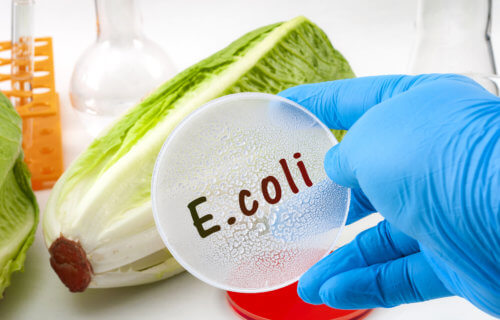CINCINNATI, Ohio — There aren’t many good things to say about E. coli. The bacteria regularly leads to infections and even deaths from contaminated food or drinks each year. Despite its dangerous reputation, a new study says there’s actually a good form of E. coli which scientists hope can protect people against its more harmful cousins.
Researchers from the University of Cincinnati College of Medicine say one strain of the bacteria, E. coli Nissle 1917, functions as a probiotic and remedy for intestinal inflammation. Their research now points to Nissle being able to protect the human body from the strain most commonly tied to meat contamination.
What makes bacteria good or bad?
Professor Alison Weiss says there are many “flavors” of E. coli. The difference between what makes some strains harmless and some extremely dangerous boils down to what genes stick to the bacteria.
“They gather genes from all over the place and channel a whole bunch of other pathogens… What is special is that bad E. coli have a chunk of extra genes that allow them to cause problems,” Weiss explains in a university release. “The good E. coli are stripped down of these genes and they don’t have the capacity to do bad things.”
According to the Centers for Disease Control and Prevention, E.coli infections are often caused by extra genes which produce Shiga toxins. There are about 265,000 infections each year in the United States. The infections can affect people of all ages and the symptoms can include stomach cramps, diarrhea, and vomiting.
Using E. coli to stop E. coli
Researchers say their studies of E. coli Nissle 1917 find that it can protect intestinal tissue, obtained from stem cells, from becoming infected by harmful bacteria. The study tests Nissle’s ability to defend against E. coli 0157:H7, the strain commonly found in contaminated hamburger beef.
Weiss and co-author Suman Pradhan say the good bacteria didn’t destroy the bad strain, but it did act as a shield for the intestines.
“Nissle did not kill pathogenic E. coli, but rather ramps up your intestinal responses and prepares you for possible pathogens attacking the intestine,” says Weiss. “We don’t know how it does this, but our study confirms its effectiveness in human cells.”
Planning ahead
Researchers say they’re working on discovering how exactly Nissle shields the intestines from suffering an E. coli infection. The answer may lead to a cure for E. coli illnesses, which Weiss adds scientists still haven’t found.
“We can give individuals fluids, but it can be really deadly and it would be really nice for us to figure out how to cure it,” she says.
The CDC and the study authors say the best way to defend against E. coli is to properly cook meat before eating, thoroughly wash off raw fruits and vegetables, and regularly wash your hands.
The study was published in the journal mBio.
Like studies? Follow us on Facebook!
